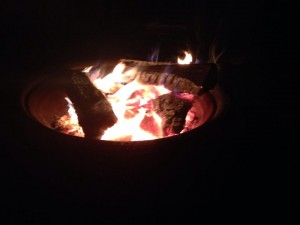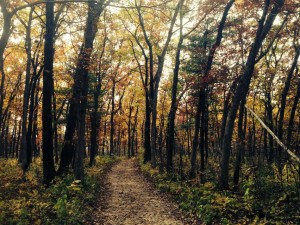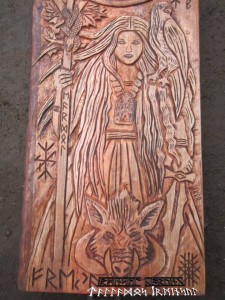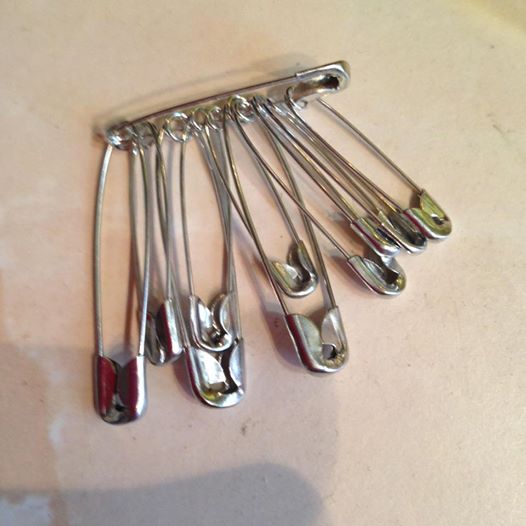 “Why did you change your name?” people ask, when they see the name on my book’s cover is different than the one I use in here.
“Why did you change your name?” people ask, when they see the name on my book’s cover is different than the one I use in here.
I had a hundred and one reasons for changing my writing name but (attention, Facebook) none of them are nefarious. And the answer I give depends on the day, my mood, and the phase of the moon. They’re all true. It was a change coming for years and it was a moment’s decision.
“Why didn’t you go all the way and change your legal name, then?”
To this there is only one answer, but it stands up to all 101 on the other side and balances them: my husband asked me not to, and I adore my husband.
So I walk the world divided, and that provides the tension that sings through me, my poems, and keeps my pulse quick. I’m hardly alone. Writers and pagans are two communities who know all about pseudonyms, pen names, craft names.
Years ago I met a Sadie who has been a fundamental influence on me. Recently I’ve been thinking about her again:
Sadie and Maud
Maud went to college.
Sadie stayed at home.
Sadie scraped life
With a fine-tooth comb.She didn’t leave a tangle in.
Her comb found every strand.
Sadie was one of the livingest chits
In all the land.Sadie bore two babies
Under her maiden name.
Maud and Ma and Papa
Nearly died of shame.When Sadie said her last so-long
Her girls struck out from home.
(Sadie had left as heritage
Her fine-tooth comb.)Maud, who went to college,
Is a thin brown mouse.
She is living all alone
In this old house.
I discovered this poem when I myself was… in college. And that may be why I read it not so much as a diatribe against education as an argument that the quality of one’s engagement with life has more to do with attitude than privilege. Maud had the privilege and played out the script, and look where she is at poem’s end. Sadie got nothing, and yet she leaves a rich legacy behind her…and had a good time in the meantime, by the sound of it.
Reading that poem at twenty, I decided a fine-tooth comb sounded like a fine way to live. But…what comprises such a comb? Where shall we find the thing, and how shall we know it?
And what do we do if we temporarily lose it?
I found myself remembering that fine-tooth comb again this week, as I’m reading excerpts from Bill Plotkin’s book Soulcraft (New World Library, 2003). Here’s an extended passage on the figure of the Wanderer: 
…This is the time in life when a person is most intensely in search of her deepest self, a self she knows she will not find reflected back to her from within the familiar arenas of her merely human culture. She searches for the seeds of her destiny in the more diverse, wild, and mysterious world of nature. She no longer conforms to nor rebels against society. She chooses a third way. She wanders, beyond the confines of her previous identity.
The Wanderer crosses and recrosses borders in order to find something whose location is unknown and unknowable. She will conclude she has found it not by its location in a certain place or by its matching a prior image, but by how it feels, how it resonates within her upon discovery. She doesn’t know where or when or how clues will appear, so she wanders incessantly, both inwardly and outwardly, always looking, imagining, feeling. In her wandering, she makes her own path.
The Wanderer discovers her unique path by perceiving the world with imagination and feeling. She senses what is possible as well as actual. She sees into people and places and possibilities, and she cultivates a relationship with the invisible realm as much as with the visible. She is in conversation with the mysteries of the world, on the lookout for signs and omens. She attend especially to the edges, those places where one thing merges with another, where consciousness shifts and opens, where the world becomes something different from what it initially appeared to be.
Plotkin’s Wanderer sounds a lot like a “livingest chit,” doncha think? And maybe, just maybe, what I’m writing my way towards in here is a Theology of the Livingest Chit.
By definition, there aren’t too many maps in this work I’m embarked upon. The Northern gods I’m tangled up with don’t set down rules to obey…but they do espouse virtues. Traditionally, these are
- Courage
- Truth
- Honor
- Fidelity
- Hospitality
- Discipline
- Industriousness
- Self-Reliance
- Perseverance
The nine Norse virtues are all honorable ideals but honestly they never fit me very well. Trying to bend myself to that list feels, well, like a slog. That probably doesn’t say anything very good about me, but there it is. I realize this morning this could be because these virtues are community oriented and I am at heart a solitary. They seek to weave a group together into a village or town or other workable society and I live at the far edge. My true home is not…the home. (Which is, yes, another source of creative tension for someone currently in the role of at home parent.)
But I have discovered another set of virtues…
Some of you will know the Northern gods are divided up into two groups: Aesir and Vanir. The Aesir are the ones most people know (thank you Marvel): Odin, Thor, Heimdall, Baldur, Tyr, Frigga…They tend to be sky gods, gods of justice and community. The Nine Virtues are Aesir virtues, for the most part.
The Vanir, on the other hand, are closer to the land, the seasons, the magics of earth. (And yes, I am grossly generalizing here…there is much subtlety in the system that I’m choosing not to go into in this space.) The Vanir deal a little more in the wild and fey. Frey, Freya, Njord are all Vanir…and so, by most contemporary accountings, is the Smith, Wayland.
And, I just discovered, searching online, they have their own set of virtues. Originally the list was twelve, but I split up Courage and Passion, which seem to me related, but separate:
For the original list, created by Nicanthiel Hrafnhild and Svartesol, see this link. I have slightly edited their list of Virtues and reworked the descriptions of each. (Author’s note: Svartesol is Nornoriel Lokason, whose more recent writings can be found here at Patheos Pagan at Ride the Spiral. And here is his official website.)
The Thirteen Vanic Virtues
Beauty
The pursuit of beauty and elegance in thought, form and speech, and the valuation of beauty as worthy in itself.
Courage
The strength of will to see a course of action through. The ability to face difficulty and danger.
Passion
Zeal, vigor; wholehearted zest for life.
Even-mood
Harmonious and balanced thought and action; tranquility, calm, serenity.
Openness
The quality of being receptive to the world around one, non-judgmental. To listen deeply.
Wildness/Ecstasy
Music and dance; the nurturing of inner wildness and radical innocence, being “fey”
Land-rightness
The recognition of nature and the environment as worthy of respect, care and reverence.
Love
The all-encompassing force which expands outward: love for family, for kin, for humanity, for all beings.
Frith
The peace and goodwill between people bound together; loyalty and the keeping of one’s word.
Giving
The binding of two parties into one common bond, generosity and hospitality.
Joy
The ability and willingness to surrender to overwhelming grace, the ability to feel happiness in the moment.
Faith/Piety
The trust that the Gods exist and are worthy of our worship, and Their ways worth following.
Brother(ahem, Sister)hood
The recognition that we – humans, animals, plants, spirits – are all part of the grander scheme of life,
and we share a common heritage, as children of the Earth.
So there it is. I think the Vanir have provided me my fine-tooth comb. At least for a while. This list connects me to myself, my true home (which may be no home?), and this earth that continually spins out from under my feet, leaving me dizzy.
Meanwhile, over my desk I’ve taped this up:
Do no harm.
Take no shit.
Be a “livingest chit.”
As they say at the end of church service every weekend, May it be so.













